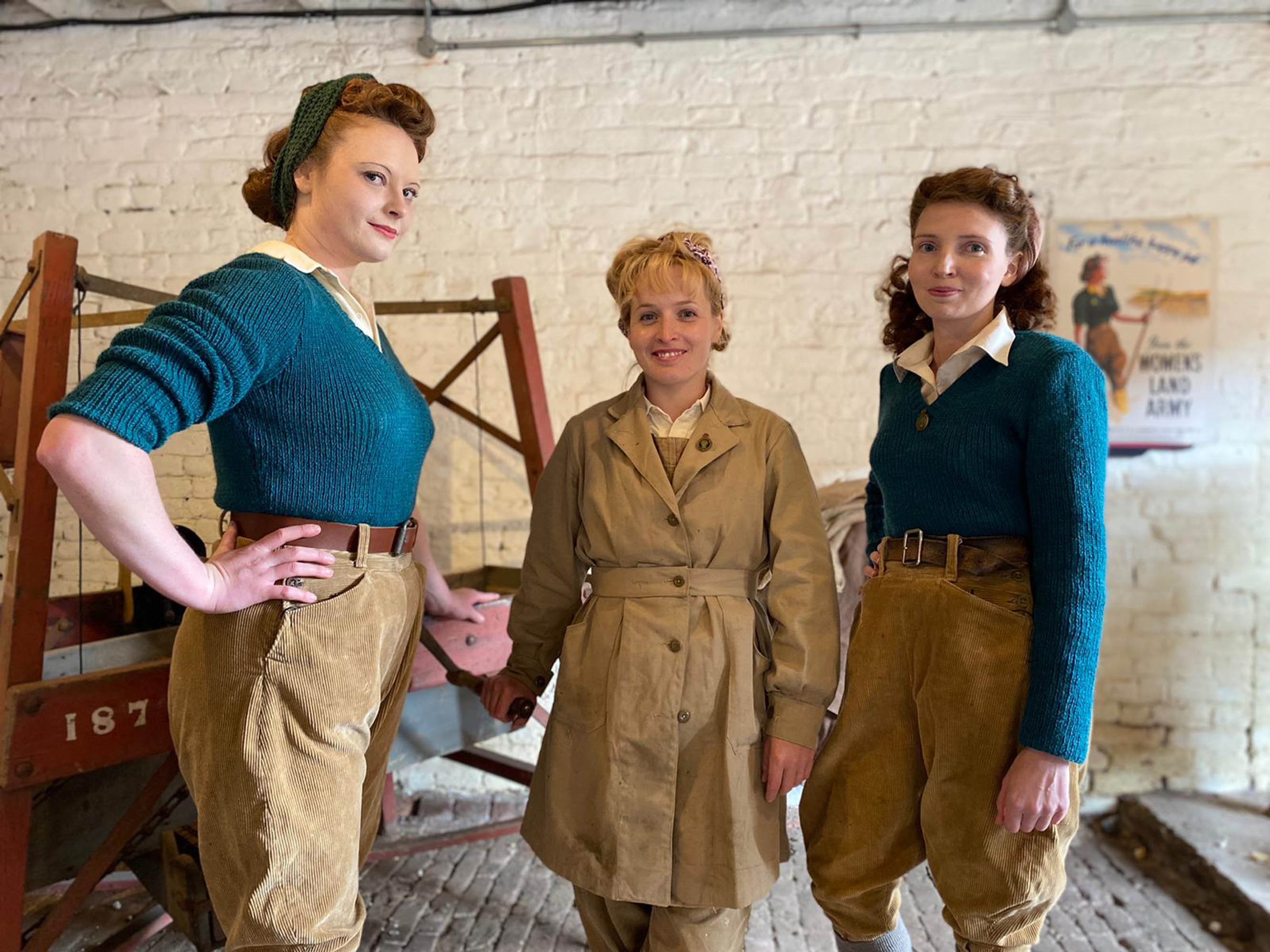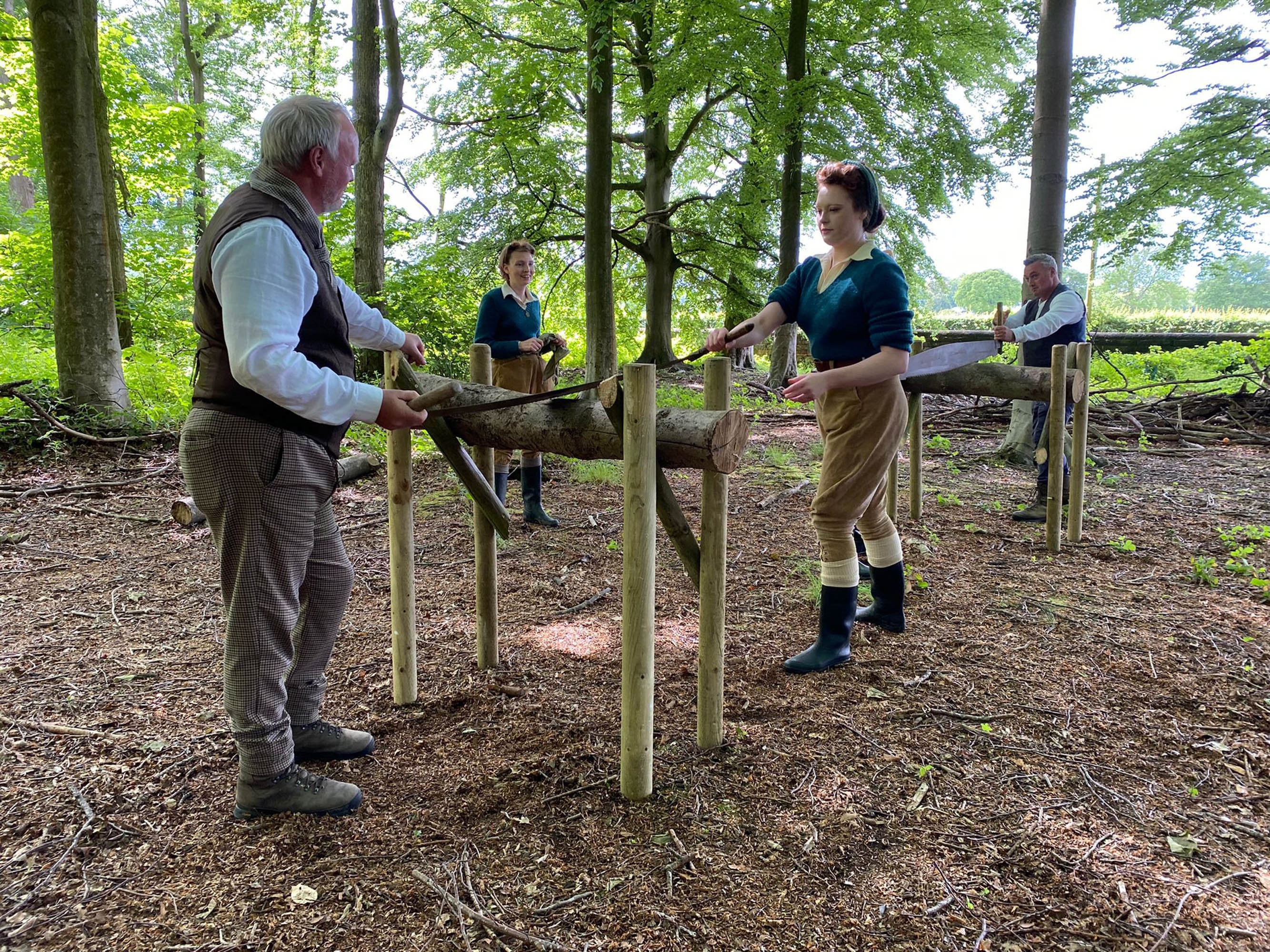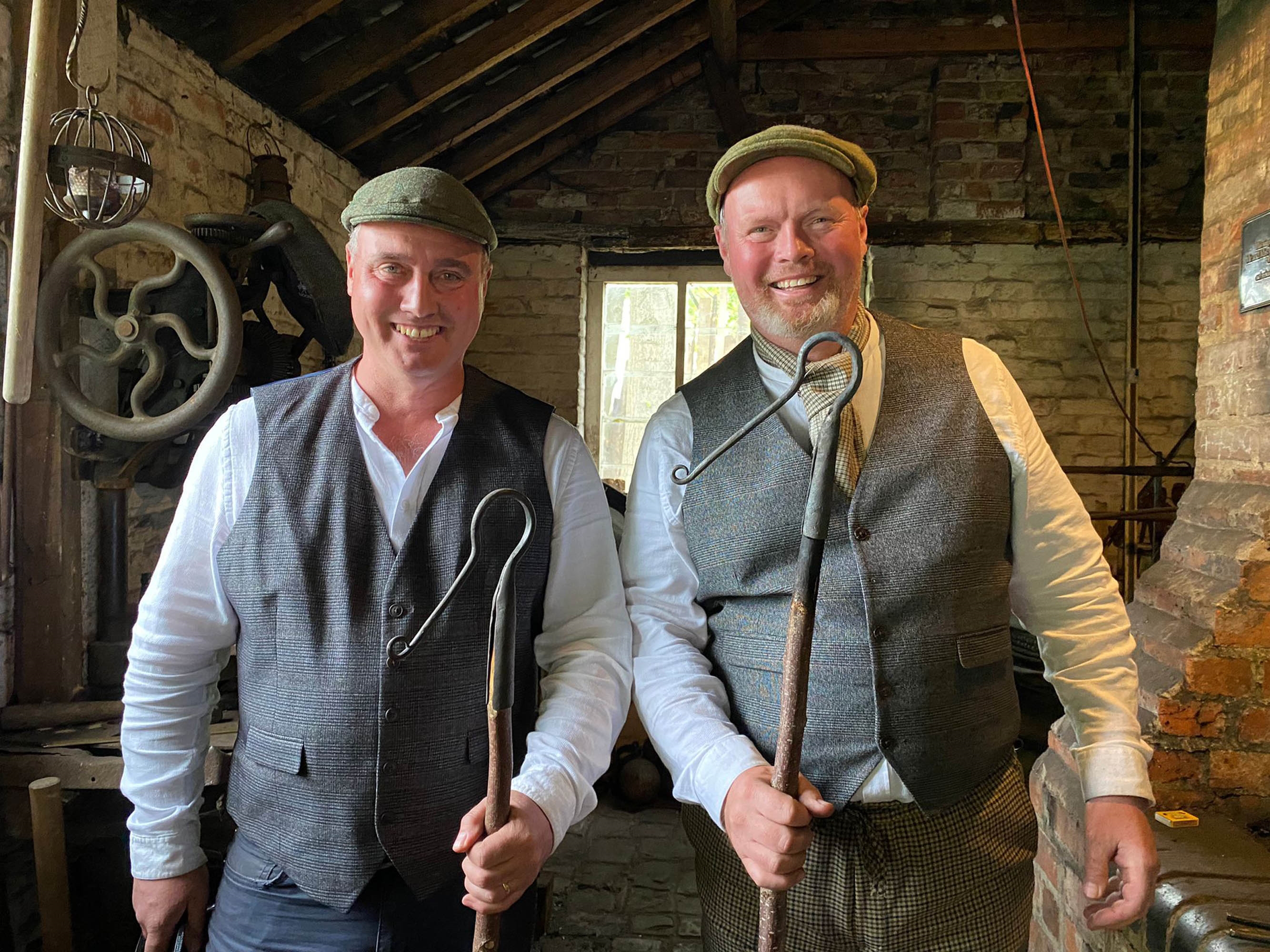A Farm Through Time — air date, episode guide and all about the time travel farming series
A Farm Through Time on Channel 5 takes you on a trip back to different eras of farming.

The latest updates, reviews and unmissable series to watch and more!
You are now subscribed
Your newsletter sign-up was successful
Want to add more newsletters?

ONCE A WEEK
What to Watch
Get all the latest TV news and movie reviews, streaming recommendations and exclusive interviews sent directly to your inbox each week in a newsletter put together by our experts just for you.

ONCE A WEEK
What to Watch Soapbox
Sign up to our new soap newsletter to get all the latest news, spoilers and gossip from the biggest US soaps sent straight to your inbox… so you never miss a moment of the drama!
A Farm Through Time is three-part weekly series on Channel 5 that explores how farming practices have evolved since the Iron Age, historian Ruth Goodman and farming brothers Rob and Dave Nicholson relive what life was really like for farmers as they battled to keep Britain fed.
Here's everything you need to know about A Farm Through Time...
A Farm Through Time release date
A Farm Through Time is a three-part series that launches on Channel 5 on Thursday, 18 August at 9pm. The episodes run weekly and will also become available on the streaming service My5.
Is there a trailer for A Farm Through Time?
Channel 5 has yet to release a trailer for A Farm Through Time. If one appears, we'll be sure to post it here.
What happens in A Farm Through Time — our episode guide
Here's our guide to A Farm Through Time which we'll update as the three-part series progresses...
Episode 1 World War Two era: Thursday August 18
The first episode of A Farm Through Time is all about 'Digging For Victory!' and discovering what farming was like during wartime. At no time in history has farming been more important than during World War Two. When conflict broke out, Britain faced a potentially devastating food crisis as German U-boats sank hundreds of merchant ships carrying vital foodstuffs – and it was up to farmers to make sure Britain wouldn’t be starved into submission.
"At the beginning of the war, 70% of our food was being imported," explains historian Ruth Goodman. "All the Nazis had to do was to stop the supply, so we had to solve this problem or starve."
The latest updates, reviews and unmissable series to watch and more!
At the outbreak of war, farming practices were rather old-fashioned, with more than half of British farms entirely horse-powered. Ruth shows Rob and Dave Nicholson a game-changing piece of wartime machinery, the Fordson tractor, which helped farmers reach the government target of ploughing an extra two million acres of land in a year. Meanwhile, they also experience the hardship of rationing, spend a night in an air raid shelter and learn how the Women’s Land Army became a crucial part of the war effort.
"Being a farmer in wartime wasn’t the same as going to fight on the battlefields. But farmers did their bit, they fed troops and stopped Britain starving," says Dave. "The farming community stood up and were counted when it mattered!"

Episode 2 Victorian era: Thursday August 25
This second episode sees Rob and Dave go back in time to the Victorian era and the Industrial Revolution, guided by historian Ruth Goodman. Britain’s health and wealth were booming, and the population more than tripled from 11 million to over 38 million. But how could farmers feed more people as labourers left the countryside to work in the new industrial towns and cities?
At Chiltern Open Air Museum, Ruth introduces Rob and Dave to innovative, labour-saving Victorian farm machinery — the reaper binder and the controversial threshing machine. Rob and Dave thresh wheat by hand, competing against Ruth and the threshing machine. Ruth reveals that the threshing machine could do in a single day what traditionally took all winter — and it made many agricultural workers unemployed and facing starvation. This revolution resulted in the Swing Riots, where labourers smashed threshing machines and threatened landowners.
One job that remained vital on the Victorian farm was that of the blacksmith — Rob and Dave meet blacksmith Mark Harding and make a traditional shepherd’s crook that they put to good use at Cannon Hall Farm. Machines may have replaced workers, but working animals such as shire horses are still in demand. And today, Rob and Dave are involved in conserving this rare breed. They demonstrate shire horse training and then, with Ruth, meet Colin and his team of shire horses, and have a go at ploughing.
Ruth gets hands-on with another rare breed, Rob and Dave’s Highland bull Ted, who is being prepared to show: agricultural shows first became popular in Victorian times and are equally popular today.
Finally, Syrian refugee and bee expert Ryad is re-introducing a different rare breed at Cannon Hall Farm — the British black bee, which was almost wiped out by disease in Victorian times.

* Best Channel 5 documentaries on My 5
* Best BBC documentaries
* Best Channel 4 documentaries

I'm a huge fan of TV so I've found the perfect job, writing about telly shows and interviewing major television, film and sports stars for over 30 years. I'm currently the TV Content Director on What's On TV, TV Times, TV and Satellite Week magazines plus contribute to Whattowatch.com. I previously worked on Woman and Woman's Own in the 1990s. Outside of work I swim every morning, support Charlton Athletic football club and get nostalgic about TV shows Cagney & Lacey, I Claudius, Dallas, Tenko and I'm quite partial to a bit of Little House on The Prairie. I'm totally on top of everything good coming up too, and love newer shows such as The Day Of The Jackal, This is Us, Hacks and anything Dexter.

